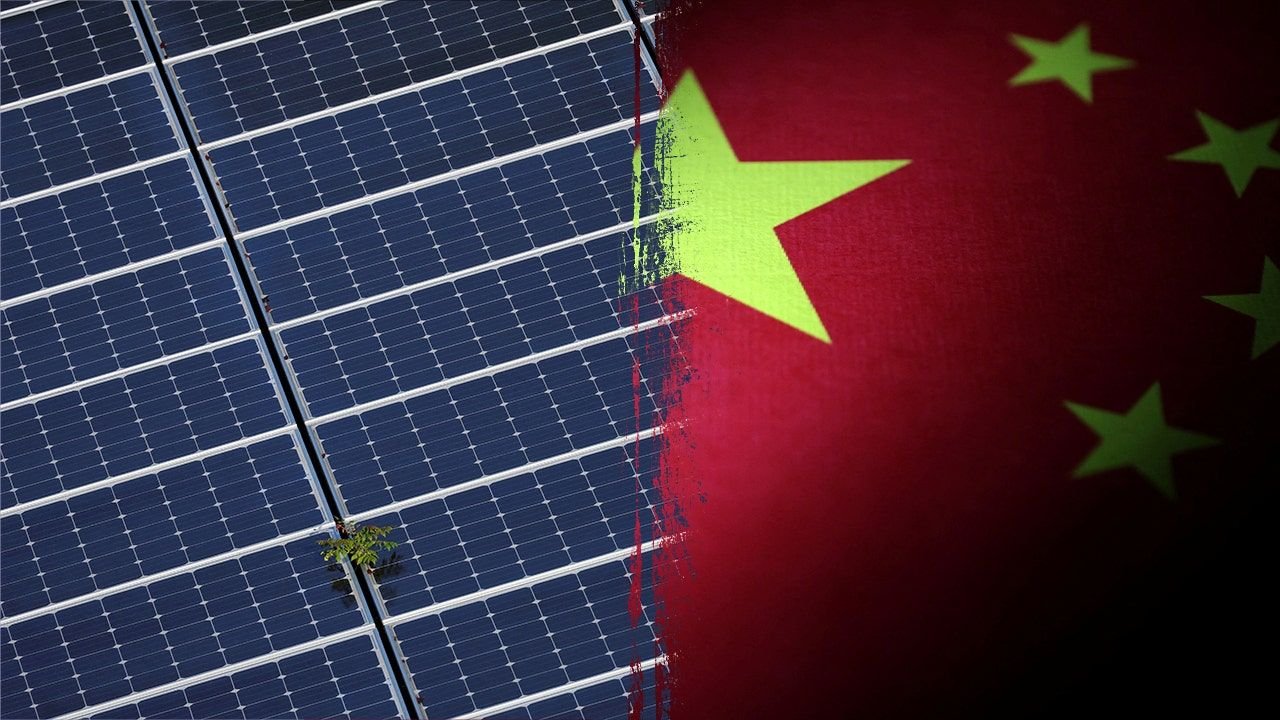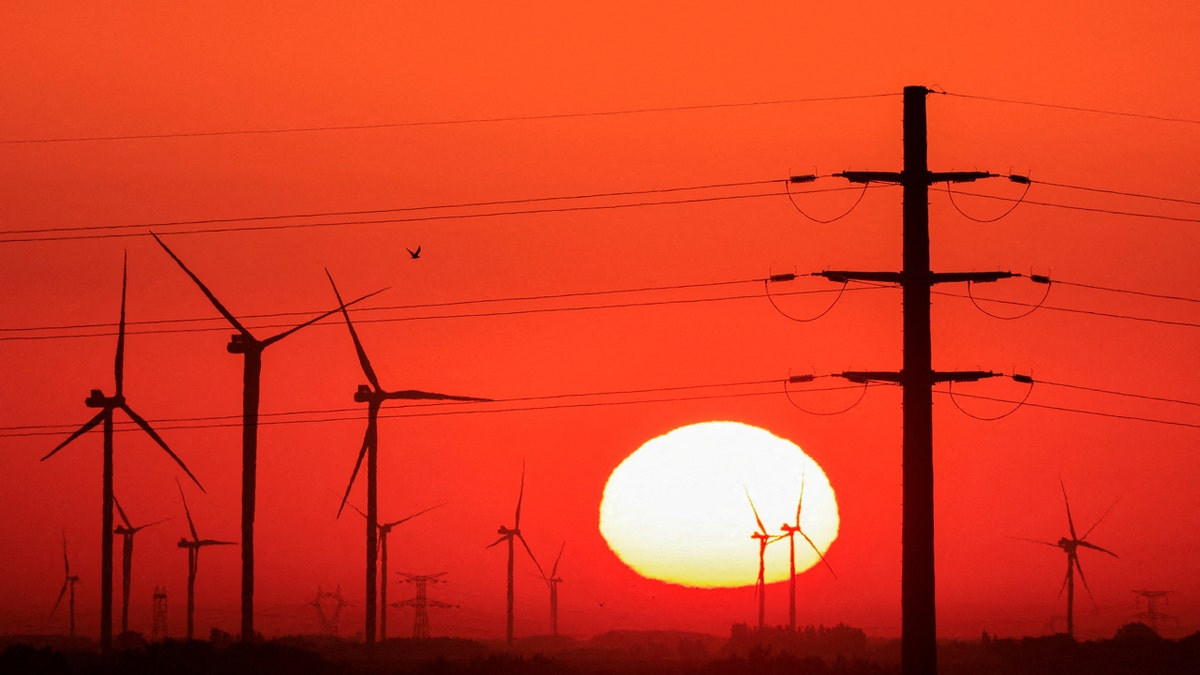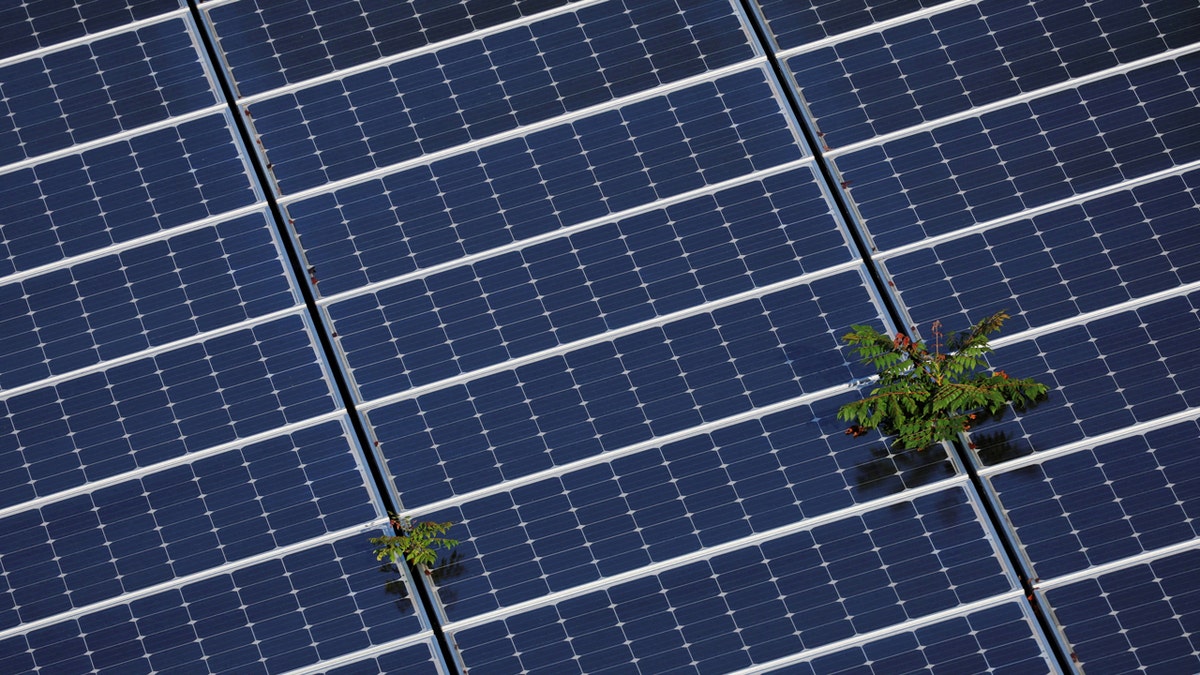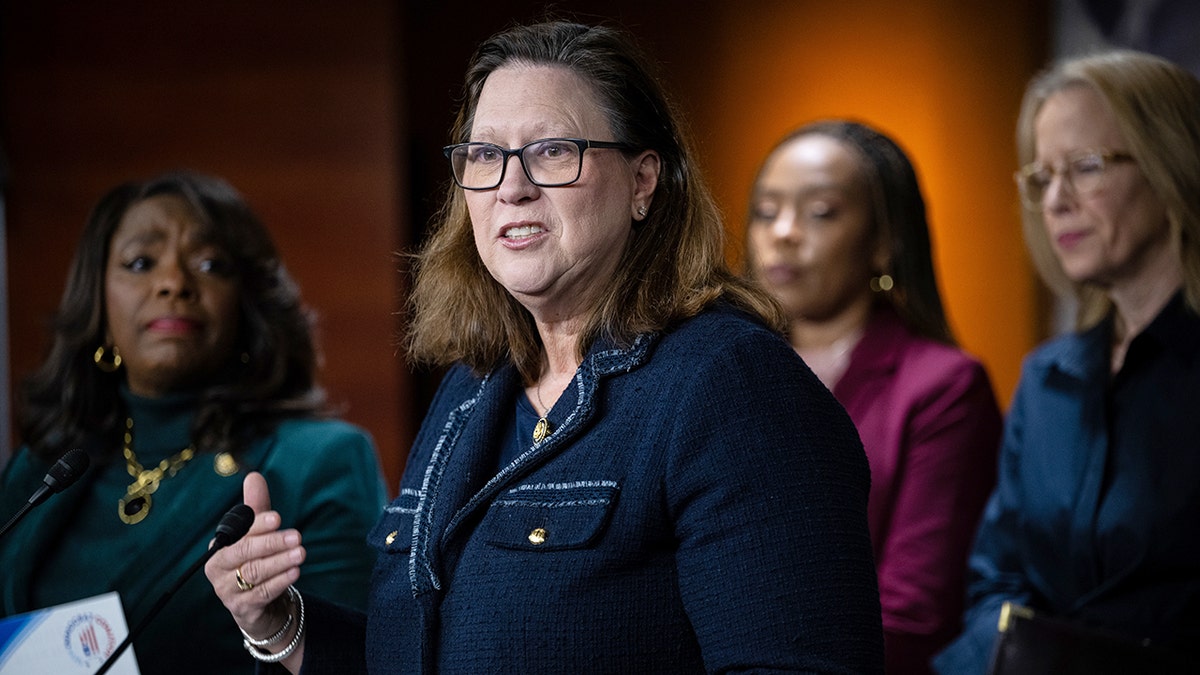INTERNACIONAL
Hidden communications devices found in Chinese solar power inverters spark security alarm

U.S. energy officials are reassessing the risk posed by Chinese-made devices that play a critical role in renewable energy infrastructure after unexplained communication equipment was found inside some of them, two people familiar with the matter said.
Power inverters, which are predominantly produced in China, are used throughout the world to connect solar panels and wind turbines to electricity grids. They are also found in batteries, heat pumps and electric vehicle chargers.
While inverters are built to allow remote access for updates and maintenance, the utility companies that use them typically install firewalls to prevent direct communication back to China.
CHINESE OFFICIALS CLAIMED BEHIND CLOSED DOORS PRC PLAYED ROLE IN US CYBERATTACKS: REPORT
However, rogue communication devices not listed in product documents have been found in some Chinese solar power inverters by U.S. experts who strip down equipment hooked up to grids to check for security issues, the two people said.
Over the past nine months, undocumented communication devices, including cellular radios, have also been found in some batteries from multiple Chinese suppliers, one of them said.
Reuters was unable to determine how many solar power inverters and batteries they have looked at.
Solar panels are arrayed on Earth Day in Northfield, Massachusetts, on April 22, 2022. (Reuters/Brian Snyder/File Photo)
The rogue components provide additional, undocumented communication channels that could allow firewalls to be circumvented remotely, with potentially catastrophic consequences, the two people said.
Both declined to be named because they did not have permission to speak to the media.
«We know that China believes there is value in placing at least some elements of our core infrastructure at risk of destruction or disruption,» said Mike Rogers, a former director of the U.S. National Security Agency. «I think that the Chinese are, in part, hoping that the widespread use of inverters limits the options that the West has to deal with the security issue.»
A spokesperson for the Chinese embassy in Washington said: «We oppose the generalization of the concept of national security, distorting and smearing China’s infrastructure achievements.»
Using the rogue communication devices to skirt firewalls and switch off inverters remotely, or change their settings, could destabilize power grids, damage energy infrastructure, and trigger widespread blackouts, experts said.
«That effectively means there is a built-in way to physically destroy the grid,» one of the people said,
The two people declined to name the Chinese manufacturers of the inverters and batteries with extra communication devices, nor say how many they had found in total.
The existence of the rogue devices has not previously been reported. The U.S. government has not publicly acknowledged the discoveries.
Asked for comment, the U.S. Department of Energy (DOE) said it continually assesses risk associated with emerging technologies and that there were significant challenges with manufacturers disclosing and documenting functionalities.
«While this functionality may not have malicious intent, it is critical for those procuring to have a full understanding of the capabilities of the products received,» a spokesperson said.
Work is ongoing to address any gaps in disclosures through «Software Bill of Materials» – or inventories of all the components that make up a software application – and other contractual requirements, the spokesperson said.
Trusted Equipment
As U.S.-China tensions escalate, the U.S. and others are reassessing China’s role in strategic infrastructure because of concerns about potential security vulnerabilities, two former government officials said.
«The threat we face from the Chinese Communist Party (CCP) is real and growing. Whether it’s telecom hacks or remotely accessing solar and battery inverters, the CCP stops at nothing to target our sensitive infrastructure and components,» said U.S. Representative August Pfluger, a Republican member of the Committee on Homeland Security.
«It is about time we ramp up our efforts to show China that compromising us will no longer be acceptable,» he told Reuters.

Chinese energy infrastructure plays a large role in the power grids of many European countries. (Reuters/Pascal Rossignol/File Photo)
In February, two U.S. Senators introduced the Decoupling from Foreign Adversarial Battery Dependence Act, banning the Department of Homeland Security from purchasing batteries from some Chinese entities, starting October 2027, due to national security concerns.
The bill was referred to the Senate Committee on Homeland Security and Governmental Affairs on March 11 and has yet to be enacted.
THE REAL BREAKTHROUGH IN U.S.–CHINA TRADE TALKS IS MUCH BIGGER THAN JUST TARIFFS
It aims to prevent Homeland Security from procuring batteries from six Chinese companies Washington says are closely linked to the Chinese Communist Party: Contemporary Amperex Technology Company (CATL), BYD Company, Envision Energy, EVE Energy Company, Hithium Energy Storage Technology Company, and Gotion High-tech Company.
None of the companies responded to requests for comment.
Utilities are now preparing for similar bans on Chinese inverter manufacturers, three people with knowledge of the matter said.
Some utilities, including Florida’s largest power supplier, Florida Power & Light Company, are attempting to minimize the use of Chinese inverters by sourcing equipment from elsewhere, according to two people familiar with the matter. FPL did not respond to requests for comment.
The DOE spokesperson said: «As more domestic manufacturing takes hold, DOE is working across the federal government to strengthen U.S. supply chains, providing additional opportunities to integrate trusted equipment into the power grid.»
‘Catastrophic Implications’
Huawei is the world’s largest supplier of inverters, accounting for 29% of shipments globally in 2022, followed by Chinese peers Sungrow and Ginlong Solis, according to consultancy Wood Mackenzie.
German solar developer 1Komma5 said, however, that it avoids Huawei inverters, because of the brand’s associations with security risks.
«Ten years ago, if you switched off the Chinese inverters, it would not have caused a dramatic thing to happen to European grids, but now the critical mass is much larger,» 1Komma5 Chief Executive Philipp Schroeder said.
«China’s dominance is becoming a bigger issue because of the growing renewables capacity on Western grids and the increased likelihood of a prolonged and serious confrontation between China and the West,» he said.
Since 2019, the U.S. has restricted Huawei’s access to U.S. technology, accusing the company of activities contrary to national security, which Huawei denies.
CHINESE IMPORTS TO US PLUMMET TO LOWEST LEVELS SINCE PANDEMIC AMID TRUMP TARIFFS
Chinese companies are required by law to cooperate with China’s intelligence agencies, giving the government potential control over Chinese-made inverters connected to foreign grids, experts said.
While Huawei decided to leave the U.S. inverter market in 2019 – the year its 5G telecoms equipment was banned – it remains a dominant supplier elsewhere.
Huawei declined to comment.
In Europe, exercising control over just 3 to 4 gigawatts of energy could cause widespread disruption to electricity supplies, experts said.
The European Solar Manufacturing Council estimates over 200 GW of European solar power capacity is linked to inverters made in China – equivalent to more than 200 nuclear power plants.
At the end of last year, there was 338 GW of installed solar power in Europe, according to industry association SolarPower Europe.
«If you remotely control a large enough number of home solar inverters, and do something nefarious at once, that could have catastrophic implications to the grid for a prolonged period of time,» said Uri Sadot, cybersecurity program director at Israeli inverter manufacturer SolarEdge.
Strategic Dependencies
Other countries such as Lithuania and Estonia acknowledge the threats to energy security. In November, the Lithuanian government passed a law blocking remote Chinese access to solar, wind and battery installations above 100 kilowatts – by default restricting the use of Chinese inverters.
Energy minister Zygimantas Vaiciunas said this could be extended to smaller rooftop solar installations.
Estonia’s Director General of the Foreign Intelligence Service, Kaupo Rosin, said the country could be at risk of blackmail from China if it did not ban Chinese technology in crucial parts of the economy, such as solar inverters.
Estonia’s Ministries of Defense and Climate declined to comment when asked if they had taken any action.
In Britain, the government’s review of Chinese renewable energy technology in the energy system – due to be concluded in the coming months – includes looking at inverters, a person familiar with the matter said.
In November, solar power inverters in the U.S. and elsewhere were disabled from China, highlighting the risk of foreign influence over local electricity supplies and causing concern among government officials, three people familiar with the matter said.
Reuters was unable to determine how many inverters were switched off, or the extent of disruption to grids. The DOE declined to comment on the incident.

Plants grow through an array of solar panels in Fort Lauderdale, Florida, on May 6, 2022. (Reuters/Brian Snyder/File Photo)
The incident led to a commercial dispute between inverter suppliers Sol-Ark and Deye, the people said.
«Sol-Ark does not comment on vendor relationships, including any relationship with Deye, nor does it have any control over inverters that are not branded Sol-Ark, as was the case in the November 2024 situation you referenced,» a Sol-Ark spokesperson said.
Deye did not respond to requests for comment.
The energy sector is trailing other industries such as telecoms and semiconductors, where regulations have been introduced in Europe and the U.S. to mitigate China’s dominance.
Security analysts say this is partly because decisions about whether to secure energy infrastructure are mostly dictated by the size of any installation.
CLICK HERE TO GET THE FOX NEWS APP
Household solar or battery storage systems fall below thresholds where security requirements typically kick-in, they said, despite now contributing a significant share of power on many Western grids.
NATO, the 32-country Western security alliance, said China’s efforts to control member states’ critical infrastructure – including inverters – were intensifying.
«We must identify strategic dependencies and take steps to reduce them,» said a NATO official.
INTERNACIONAL
Dem senator fumes that GOP’s foreign funding claim ‘delegitimizes’ anger of anti-ICE agitators in US

NEWYou can now listen to Fox News articles!
Sen. Andy Kim, D-N.J., lamented during a hearing on Capitol Hill Tuesday that allegations about foreign funding and coordination among anti-ICE agitators are «delegitimizing» people’s justified «anger» and «fear» caused by federal immigration officers.
Kim also called the questioning «dangerous» during the Tuesday hearing, which was about fraud and touched on concerns that foreign adversaries were financing anti-ICE efforts in the U.S. to create a strategic smokescreen meant to deter accountability away from their massive criminal fraud enterprises.
«People all over this country are frustrated and concerned and upset. They’re scared and they’re worried about things because they just saw two American citizens get killed in the street by federal agents,» Kim said Tuesday.
FOREIGN BILLIONAIRES FUNNEL $2.6B TO US ADVOCACY GROUPS TO INFLUENCE POLICY, WATCHDOG REPORT CLAIMS
Sen. Andy Kim, D-N.J., arrives on the Senate subway in the Capitol on Wednesday, Feb. 12, 2025. (Bill Clark/CQ-Roll Call, Inc via Getty Images)
«The idea that people would be saying that this type of anger and this type of of outrage – whether in New Jersey or in Minnesota – is being predominantly coordinated in this type of way,» he continued. «I just have to say it is delegitimizing the anger and the fear that people are facing right now … The way in which it’s been described … I just think is very dangerous right now. And I hope that we can still say and recognize that there are a lot of people, a lot of people that are furious right now and worried.»
The Senator’s arguments, such as that the violence from anti-ICE agitators stems from justified anger and that the questioning of how this violence is being organized «delegitimizes» protesting, have been frequently touted by Democrats in the past, and not just as it pertains to the ongoing anti-ICE sentiment.
During a separate congressional hearing in December, Rep. Julie Johnson, D-Texas, described attacks against ICE agents – which are up 12,000%, according to the Trump administration – as the result of people «channeling [their] frustration.»
«You’re seeing an overwhelming frustration of the American people in this country that the lack of respect and regard for the rule of law from this administration, and in particular by this Secretary, is at a level we have never seen and violates all of the constitutional norms and all of the principles of legal fairness in this country,» Johnson said. «And you’re seeing that manifest itself in threats to law enforcement, in bubbling over, because people are frustrated, and they are channeling that frustration because the administration is not listening.»
HAWLEY TARGETS MINNESOTA FRAUD, CCP-LINKED MONEY AT SENATE HEARING: ‘TAXPAYERS ROBBED BLIND’

Representative Julie Johnson, a Democrat from Texas, speaks during a New Democrat Coalition news conference on health care at the US Capitol in Washington, DC, US, on Wednesday, Dec. 3, 2025. (Graeme Sloan/Bloomberg via Getty Images)
Meanwhile, in 2024, amid ongoing protests regarding the situation in Gaza and other civil unrest, the American Civil Liberties Union (ACLU) described former Speaker of the House Nancy Pelosi’s calls for the FBI to investigate Gaza ceasefire protests for connections to Russia as «incredibly dangerous.»
«From Martin Luther King Jr. to Black Lives Matter protesters, the FBI has long used ‘foreign influence’ as an excuse to conduct illegal surveillance on Americans exercising free speech rights,» the ACLU said in a post on X in 2024.
Despite claims that foreign funding accusations act as a smokescreen to «legitimize» lawful First Amendment activity, Republican-aligned witnesses during the Tuesday hearing argued billionaires, including some with ties to foreign adversaries, such as Neville Roy Singham and Hansjorg Wyss, pumped $60 million into the agitation efforts aimed at disrupting federal immigration efforts.

As unrest escalates in Minneapolis, investigators are uncovering a network of far-left activist groups allegedly bankrolled by a wealthy U.S. expat in China with reported ties to Chinese Communist Party–aligned propaganda efforts. (Roberto Schmidt/ AFP via Getty Images; Dave Kotinsky/Getty Images for V-Day)
CLICK HERE TO GET THE FOX NEWS APP
«It comes in the form of a check, a six-figure check,» said Government Accountability Institute VP Seamus Bruner. «We’ve built a database that contains hundreds of thousands of rows from grants from networks like the Soros Network, the Arabella funding network – as mentioned – the Neville Roy Singham funding network, many others, Tides, the Ford Foundation network, the Rockefeller Funding network, these massive NGOs that have billions of dollars to spend on all kinds of coordinated protest, or in this case, riot activity.»
us protests,hearings,democrats senate,minneapolis st paul,deportation,illegal immigrants
INTERNACIONAL
Record-setting wave of mountain deaths rocks Italy after avalanches strike

NEWYou can now listen to Fox News articles!
Rescuers in Italy reported Monday that at least a dozen skiers, climbers and hikers died over the past week in a record-setting tragedy in the country’s mountainous terrain.
While authorities said 11 of the 12 victims were killed in avalanches triggered by exceptionally unstable conditions on ungroomed backcountry slopes, The Associated Press reported a total of 13 deaths.
The incidents occurred just as the Winter Olympics began in the region last Friday. Authorities stressed that the game sites — located in Lombardy on the Swiss border, Cortina d’Ampezzo in Veneto and Val di Fiemme in Trentino — remain safe, well-maintained and closely monitored.
Italy’s specialist mountain rescue organization revealed the fatal disasters were caused by weak layers of fresh snow, unstable enough that the passage of a single person could trigger an avalanche.
POWER OUTAGE HALTS MILAN CORTINA OLYMPICS CURLING COMPETITION MOMENTS AFTER MATCHES BEGIN
Vigili del Fuoco crew members dig through heavy snow while conducting a mountain search and rescue operation. (Vigili del Fuoco)
The main issue is caused by «persistent weak layers in the snowy cloak, often covered by fresh snow or wind, conditions that make detachments unpredictable and easily triggered even by the passing of a single skier or alpinist,» the National Alpine and Speleological Rescue Corps said. «The dangerous points are many and difficult to identify, even for an expert.»
The country’s Alpine Rescue Corps spokesperson, Federico Catania, added that recent snowstorms have prompted visitors to take advantage of the fresh slopes, «and as a result, the number of accidents, and therefore fatalities, has increased proportionally,» the AP reported.
JAKE PAUL BREAKS DOWN IN TEARS AS FIANCÉE JUTTA LEERDAM SHATTERS OLYMPIC SPEEDSKATING RECORD

Two Vigili del Fuoco crew members stand inside a helicopter next to an open door during a snowy mountain operation. (Vigili del Fuoco)
Italy’s national fire and rescue service, Vigili del Fuoco, reported that, over the weekend, two people died and one was seriously injured in Alpe Meriggio in Valtellina after being caught in an avalanche that fatally buried at least one of the victims.
The Associated Press also reported that three people died in avalanches in Trentino and one in neighboring South Tyrol.
Another two were reportedly killed in separate avalanches near the Marmolada glacier, two hikers along the Apennine range and an ice climber in Valle d’Aosta.
CLICK HERE FOR MORE SPORTS COVERAGE ON FOXNEWS.COM

Vigili del Fuoco crew members conduct a helicopter rescue over a mountain area. (Vigili del Fuoco)
Outside such regions, Catania said people skiing in managed areas should not face any significant risks, the AP reported.
«There is no danger for people skiing within managed ski resorts, and, in particular, no risks to the Olympic sites,» Catania said. «All of these areas are constantly monitored and are generally safe regardless of Olympic events.»
CLICK HERE TO DOWNLOAD THE FOX NEWS APP
Prior to the start of the Winter Olympics, Vigili del Fuoco said that crews would maintain safety measures for all visitors to the sites.
«For the Milan Cortina 2026 Olympic and Paralympic Winter Games, the Italian National Fire Brigade has implemented an enhanced rescue structure to ensure the safety of athletes, delegations, spectators, and citizens, while also ensuring the continuity of the regular service,» the organization said.
italy,avalanche,weather,sports,environment world,olympics,world
INTERNACIONAL
“No hay nada como la crudeza y la emotividad”: el día que Robert Plant hizo un llamado a preservar la esencia del rock

Robert Plant se encontraba en una sala de entrevistas en agosto de 2002. Frente a él, el periodista Dean Goodman le preguntaba sobre la evolución del rock. La radio sonaba en el fondo, mientras el exvocalista de Led Zeppelin escuchaba atentamente el panorama musical del momento. Plant tenía una opinión definida sobre la nueva ola de bandas.
El músico británico, conocido por su camino junto a Led Zeppelin, no dudó en expresar su descontento. Observó que la mayor parte de la música que dominaba las radios carecía de la autenticidad y energía que caracterizaron al género en décadas pasadas. Plant sentía que algo fundamental en el rock se había perdido en la transición hacia el nuevo milenio.
De acuerdo con Far Out Magazine, Robert Plant afirmó que el 75% de la música que se emitía en la radio resultaba “impecable e insustancial”, grabada de manera digital y alejada del espíritu rebelde y espontáneo que, según él, definía al rock. En su análisis, Plant destacó que solo algunas bandas como Flaming Lips y White Stripes lograban ofrecer algo destacado y diferente en ese contexto.
Durante la entrevista, Dean Goodman consultó a Plant si alguna de las bandas emergentes tenía su aprobación. El cantante respondió que valoraba los intentos de innovación, siempre que evitaran caer en una propuesta débil y carente de sustancia. Plant señaló directamente a Linkin Park como ejemplo de la dirección que, a su juicio, no beneficiaba al género.
“Linkin Park, ¿en eso se convirtió realmente el rock?”, preguntó Plant. La frase resonó en la prensa musical, ya que señalaba un desencanto con la tendencia predominante en ese momento. Según el cantante, la búsqueda de un sonido pulido y digital restaba fuerza y autenticidad a la música que, históricamente, se caracterizó por su crudeza y emotividad.
Sin embargo, Plant no desconoció completamente el aporte de la banda estadounidense. Reconoció que, aunque el estilo de Linkin Park difería de sus expectativas, detectaba una honestidad emocional en la propuesta de la banda que merecía respeto.

Chester Bennington, exvocalista de Linkin Park, fallecido en 2017, se destacó por su capacidad para transmitir dolor y tristeza a través de su voz.
Plant advirtió esta cualidad y la consideró una rareza en la generación de músicos. El líder de Led Zeppelin señaló que, pese a sus reparos sobre el sonido de la banda, resultaba innegable la sinceridad emocional que Bennington llevaba al escenario.
Según Far Out Magazine, este matiz marcó la diferencia en la opinión de Plant. Aunque rechazó el estilo digital y pulido, reconoció la autenticidad de los sentimientos que Linkin Park transmitía. Para Plant, esa honestidad constituía un valor esencial, a pesar de los cambios en la producción musical y las tendencias de la industria.

El debate sobre la autenticidad y la evolución del rock no es nuevo. Plant representa a una generación que vivió el auge de la música en vivo, con errores y aciertos espontáneos que, en su opinión, enriquecían la experiencia. Las nuevas bandas, en cambio, enfrentan una industria que prioriza la perfección técnica y la producción digital.
La opinión de Robert Plant generó discusiones en el ambiente musical. Muchos seguidores del género compartieron su preocupación sobre la pérdida de la esencia original del rock. Otros, en cambio, defendieron la evolución y adaptación a los nuevos tiempos, considerando que la música debe reflejar los cambios tecnológicos y culturales de cada época.
De acuerdo con Far Out Magazine, la crítica de Plant sirvió para abrir un debate más amplio sobre la autenticidad en el arte. Para algunos, la perfección técnica nunca podrá reemplazar la emoción genuina. Para otros, la innovación es parte fundamental del desarrollo musical.

La música continúa evolucionando, y las nuevas generaciones seguirán interpretando el rock a su manera. Sin embargo, la discusión sobre la autenticidad, la innovación y la emoción sigue vigente. Plant, al señalar sus diferencias con el sonido contemporáneo, reafirmó la importancia de la honestidad artística.
El músic propuso una reflexión sobre la dirección que toma el rock, el papel de la producción digital y la necesidad de preservar la esencia emocional en la música. La historia de su crítica a Linkin Park permanece como un ejemplo de cómo los géneros musicales se transforman, pero también de cómo ciertos valores atraviesan el tiempo.
El debate sobre la autenticidad y la evolución del rock continúa abierto, tanto para músicos como para oyentes, en un mundo donde la tecnología y la emoción compiten por definir el sonido de cada generación.
fredriksten festning

 ECONOMIA3 días ago
ECONOMIA3 días agoEl sector industrial advierte que la apertura económica exige eliminar las distorsiones internas

 POLITICA18 horas ago
POLITICA18 horas agoAcuartelamiento policial en Santa Fe: reclamo salarial y temor a un conflicto nacional de seguridad

 ECONOMIA3 días ago
ECONOMIA3 días agoMercados: subió la Bolsa argentina y cortó una serie negativa de siete ruedas consecutivas















